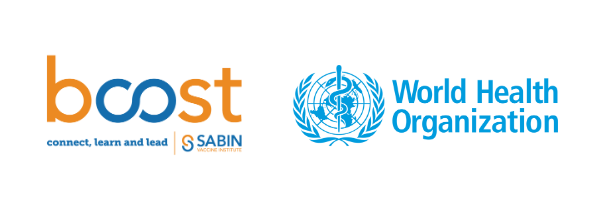Reducing Zero-Dose of Penta1 immunization in Umbada locality in Khartoum state, Sudan 2022
In May 2022, Sabin’s Boost Community and the World Health Organization (WHO) launched the first cohort of the "COVID-19 Recovery for Routine Immunization Programs Fellowship". The aim of this program was to strengthen the capacity of national and sub-national immunization professionals to plan and implement immunization programming during the COVID-19 recovery period, with the ultimate goal of reversing the declining rates of immunization coverage. After an intensive live engagement series, Fellows were tasked with drafting their own strategic proposal for implementation or case study for publication. This series of Bright Spots that shares Fellows' key learnings and takeaways from the program.
Introduction
The Sudan Expanded Program on Immunization (EPI), with support from partners, succeeded for many years in sustaining high routine vaccination coverage, with DTP1 coverage ranging from 97-98% and DTP3 coverage above 90% from 2011-2019. However, political unrest, economic crisis, and changes in governing regime initiated a gradual coverage decline beginning in 2019, further accelerated by the COVID-19 pandemic.¹
In Kartoum state, a total lockdown in response to the COVID-19 pandemic was enforced from April until July 2020. More than 60% of primary health care facilities and vaccination sites fully closed during this time period, and only 16% of the health facilities operated as normal.² The Umbada locality, with 143 immunization centers and 55 outreach centers, was particularly hard-hit.
The Umbada locality is a suburban area of the capital city Khartoum, with a multi-ethnic population representing different regions and tribes of Sudan.³ The population in remote areas face numerous obstacles to obtaining basic primary healthcare services, including lack of accessibility and affordability, which was further amplified by health facility closures and other impacts of the COVID-19 pandemic. Challenges also include the implementation of outreach and mobile sessions as well as a lack of communication and low staffing numbers at vaccine sites.
As of August 2022, the Umbada locality had the largest proportion of zero-dose children, those who have not received any routine immunization, in Sudan.³ Reaching these zero-dose children with life-saving vaccines is critical to ensure vaccine equity, improve immunity to prevent vaccine-preventable disease outbreaks, and reach IA2030 and the 2030 Sustainable Development Goals.
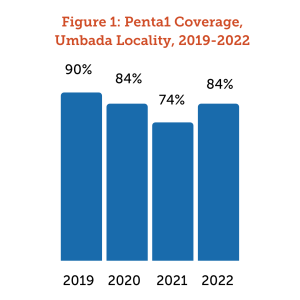
Intervention
A team from the Federal Ministry of Health sought to increase coverage of the Penta1 vaccine to more than 85% by the end of the year, improving equity and decreasing access barriers for unvaccinated children. Leveraging guidance from the COVID-19 Recovery for Routine Immunization Programs Fellowship on operationalizing strategies to reduce the number of zero-dose children, the team focused on expanding outreach sessions in the weakest areas in the locality, strengthening the health promotion activities, and supporting implementation of these activities.
The program team collaborated with state and locality vaccination officers to select six priority health centers from six different geographical areas in Umbada locality. Leveraging an assessment of the immunization gaps provided by the locality, the team planned a ten-day vaccination campaign of mobile and outreach sessions in the selected health centers with a focus on:
- conducting outreach and mobile health services to improve access and utilization of vaccination services,
- recruiting a trained health promotion team to strengthen health promotion activities,
- provided required resources such as mobile microphones and car rentals,
- providing locality and federal supervision,
- providing incentives for the vaccinators, health promoters and supervisors.

Teams from each health center, including a vaccinator and a recorder, conducted health promotion activities and service delivery in a five-kilometer catchment area around their assigned health center. Teams rotated between conducting mobile outreach and providing health services at the health center to decrease accessibility barriers and improve equity for service provision. Teams from two of the six health centers used vans equipped with microphones to reach people around identified vaccination sites. Children vaccinated with their first dose were provided immunization cards, and vaccinations were also provided to any other under-vaccinated under-five-year-old child.
The project team provided support to local staff throughout the vaccination campaign, including both financial incentives and supportive supervision. Supervision, conducted by three federal staff supervisors, is particularly important for motivation. Collaboration was also done with local midwives to find women who had delivered a child at least six weeks prior which also supported identification of eligible infants who were delivered at home, for accurate records.
| Table 1. Number of vaccination sessions planned and conducted, by health center, Umbada, October and November 2022 | ||||
|---|---|---|---|---|
| October 2022 | - | - | - | |
| - | - | Number of Sessions | - | |
| Center | Planned | Implemented | Percentage | |
| Al Rayan | 10 | 10 | 100 | |
| Nivasha | 20 | 20 | 100 | |
| Al Manar | 20 | 20 | 100 | |
| Haja Amna | 20 | 20 | 100 | |
| Al Rahma | 10 | 10 | 100 | |
| Al Safwa | 20 | 20 | 100 | |
| Total | 100 | 100 | 100 | |
The team implemented the vaccination campaign during the end of October 2022, conducting 100 vaccination sessions (each session lasting eight hours) at six health centers in Umbada (Table 1), exceeding the planned number of sessions across all health centers.
The original annual target for Penta1 doses for these six health centers in 2022 was 4,323, or 360 doses per month. However, only 2,249 children had received the vaccine prior to this campaign and 2,074 children remained designated as zero-dose children in the catchment areas for these 6 health centers. As such, the monthly target was increased from 360 to 691 for the remaining months of the year in order to achieve the targets. In only ten days, the campaigns succeeded in providing 960 Penta1 doses, more than 138.9% of the increased monthly target (see Table 2); they also provided 1,039 doses of Penta3 and Measles to children in the catchment areas.
| Table 2. Penta1 doses and coverage per selected health centers Umbada locality, Sudan, 10 day campaign, (5\11\2022) | |||||||||||
|---|---|---|---|---|---|---|---|---|---|---|---|
| October 2022 | - | - | - | - | - | - | - | - | - | - | |
| - | - | - | First Dose | - | Penta | - | - | - | Measles 1 | - | Intervention Contribution |
| Center Name | Target | Target per Month | Penta1 Accum. | Not Vaccinated | Penta1 | % of Target | Penta3 | % of Target | Number | % of Target | % of Monthly Target |
| Al Rayan | 449 | 57 | 277 | 172 | 25 | 5.6 | 21 | 4.7% | 24 | 5.3% | 43.6 |
| Nivasha | 1104 | 194 | 521 | 583 | 254 | 21.5 | 110 | 10% | 130 | 11.8% | 130 |
| Al Manhar | 429 | 88 | 164 | 265 | 358 | 74.4 | 69 | 16.1% | 214 | 49.9% | 405.6 |
| Haja Amna | 913 | 164 | 420 | 493 | 129 | 13.1 | 108 | 11.8% | 100 | 11% | 78.5 |
| Al Rahma | 428 | 72 | 213 | 215 | 79 | 15.9 | 47 | 11% | 63 | 14.7% | 110 |
| Al Safwa | 1000 | 115 | 654 | 346 | 115 | 10.2 | 77 | 7.7% | 76 | 7.6% | 99.7 |
Through these campaigns, the team supported the increase of Penta1 coverage in the catchment areas around the selected six priority health centers to more than 95% by the end of the year, while also providing other routine vaccines (Penta2, Penta3, Measles and Polio). Combined with other acceleration interventions conducted in Umbada locality from October – December 2022, the locality reached an overall 84% Penta1 coverage by the end of 2022.
Lessons Learned
The vaccination campaign succeeded in reaching zero-dose children in the Umbada locality and increasing Penta1 coverage rates by improving access to and utilization of health services. Raising awareness about the availability and importance of vaccines among the population through implementation of mobile vaccination services was particularly important. The use of loudspeakers through mobile vans helped to inform communities in rural areas about the immunization campaigns. Strengthening community involvement, including working with midwives to identify women who had recently given birth, supported the identification of unreached children and enabled health promoters and vaccinators to conduct necessary outreach activities.

Supportive supervision is essential in the implementation of the project activities and is a strong motivational factor for staff, as they require regular support from the state and localities. Providing financial incentives to staff for extra work also provided strong motivation to improve the quality of work. Supporting staff that implements vaccine activities is necessary in having successful campaigns.
Looking Forward
Umbada is a large locality with more than 100 health centers, and scaling this intervention could drive further improvements and strengthening of routine immunization services. Securing political commitment to vaccination activities would ensure sustainable support, and requires advocating this to policy makers. Exploring multisectoral approaches and engaging NGO involvement in the future could sustain coverage improvements and support outreach, mobile sessions, and defaulter tracing. Teams must also ensure the provision of timely and ongoing funds to prevent delays. By ensuring this momentum continues, the number of zero-dose children will continue to decrease in Umbada locality and Khartoum state.
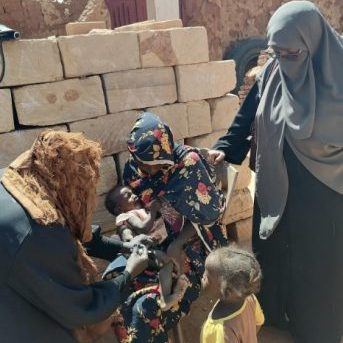
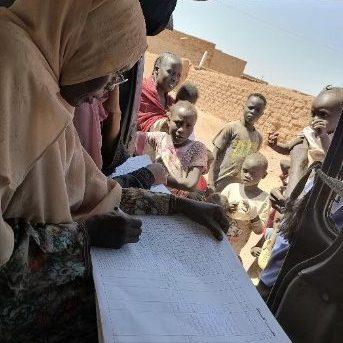
References
- “Immunization country profiles: Sudan” UNICEF Data. UNICEF. July 2023, https://data.unicef.org/resources/immunization-country-profiles/.
- Ibrahim, Arwa, and Hamza Mohamed. “At Least 60 Percent of Khartoum Health Centres Shut: Who.” Conflict News | Al Jazeera, 6 June 2023, www.aljazeera.com/news/liveblog/2023/4/26/sudan-live-news-truce-violations-worsen-civilian-suffering.
- “Sudan: People Cut off from Healthcare at High Risk of Malnutrition and Diseases in Omdurman.” MEDECINS SANS FRONTIERES – MIDDLE EAST, 26 Aug. 2022, www.msf-me.org/media-centre/news-and-stories/sudan-people-cut-healthcare-high-risk-malnutrition-and-diseases.
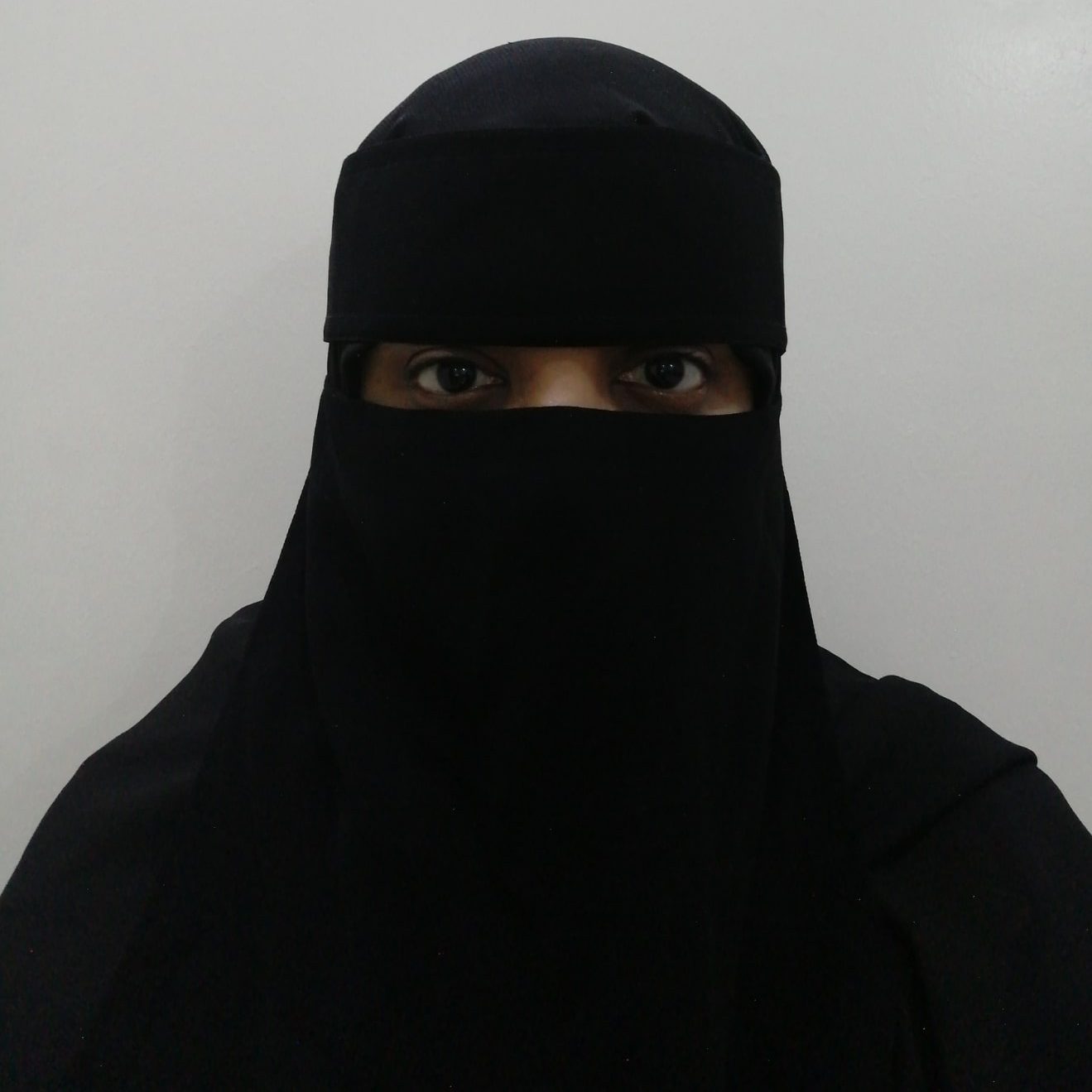
2022 Fellow & Contributor
This case study was shared by Manal Sayed Fadol Sayed. A community physician with over six years of experience in mother and child health programs. She has worked as the Head of Unit for Adolescent Health for one year, coordinating training programs for the child health program for two years, and as the Head of Unit for RotaVirus and Invasive Bacterial Disease Surveillance for about three years. She holds an MBBS degree (2011) from Alzaiem Alazhari University, a Master's degree (2017) in Community Medicine from Khartoum University, and a Medical Doctorate (2020) from the Sudan Medical Specialization Board.s case study was shared by Manal Sayed Fadol Sayed. A community physician with over six years of experience in mother and child health programs. She has worked as the Head of Unit for Adolescent Health for one year, coordinating training programs for the child health program for two years, and as the Head of Unit for RotaVirus and Invasive Bacterial Disease Surveillance for about three years. She holds an MBBS degree (2011) from Alzaiem Alazhari University, a Master's degree (2017) in Community Medicine from Khartoum University, and a Medical Doctorate (2020) from the Sudan Medical Specialization Board.
